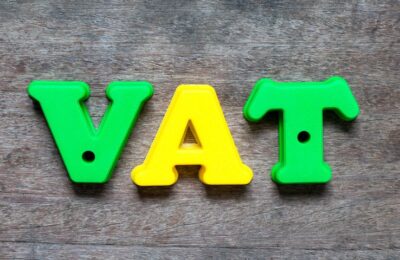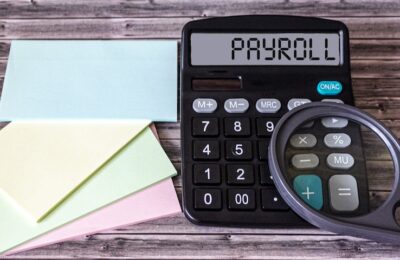In September 2021, we published an article explaining the upcoming system of late tax penalties. The new regime applies to both VAT and Income Tax. It will impose certain penalties for late tax return submissions and late payment of tax.
However, since we posted, the dates on which the new system will begin have changed. In this post, we alert you to the new dates and give you a recap on how the new late tax penalty system will work.
Late tax submission penalties
The new system in relation to VAT came into effect on 1 January 2023. The other new late tax submission systems will come into force on the following dates:
- 6th April 2026: for self-employed / landlords who are part of the Making Tax Digital for Income Tax Self-Assessment (MTD ITSA) system and have an income of £50,000 +
- 6th April 2027: for self-employed / landlords who are part of the Making Tax Digital for Income Tax Self-Assessment (MTD ITSA) system and have an income of £30,000 +
From these dates, late submission penalties will be calculated using a points-based system. Each late submission will result in a penalty point, until you reach the penalty threshold. Once this is met, you will be charged £200. Every subsequent late submission will attract a further penalty of £200.
The points threshold for a penalty depends on how frequently you are supposed to file.
- Annual submission: 2 points
- Quarterly submission: 4 points
- Monthly submission: 5 points
If you are given penalty points and you don’t reach the penalty threshold, those points will expire after two years. However, if you do meet the threshold, the points will remain until you meet a ‘period of compliance’. This is a period of time during which you don’t make any late submissions.
The different ‘periods of compliance’ are as follows:
- Annual submission: 24 months’ compliance
- Quarterly submission: 12 months’ compliance
- Monthly submission: 6 months’ compliance
It’s worth noting that, if you pay both VAT and Income Tax, any points are kept separate. For example, any points you are given for late VAT submissions do not count towards any Income Tax penalty.
If you have multiple businesses, only one point will be levied per quarter, regardless of how many of your businesses fail to file.
Late tax payment penalties
Let’s turn now to the upcoming late payment penalty system.
This will be introduced on the following dates:
- VAT – now in place from 1 January 2023.
- 6th April 2026: for self-employed / landlords who are part of the Making Tax Digital for Income Tax Self-Assessment (MTD ITSA) system
- 6th April 2027: Income Tax payers who are still part of the existing Self-Assessment system
The system will be built on two potential penalties. These are known as the ‘first penalty’ and the ‘second penalty’.
How the first penalty works
The first penalty comprises two charges:
- If tax is outstanding after 15 days, a penalty of 2% of the owed tax will be levied
- If it is still outstanding after 30 days, a further 2% is charged.
How the second penalty works
The second penalty kicks in when tax hasn’t been paid after 31 days. Interest then accrues on a daily basis at 4% per annum.
How the penalty can be avoided
There’s a number of ways you can avoid the new late payment penalties:
- By paying the tax due within 15 days
- If you have a reasonable excuse for the late payment
- By entering into a ‘Time to Pay’ agreement – penalties will not accrue from the date of the agreement.
If you feel HMRC has unfairly penalised you, you can ask for a review. You can also appeal to the courts.
It’s also worth knowing that, in the first year of the new system, HMRC will be taking a light-touch approach. During this year, it will not impose the first 2% penalty. Effectively, this means you won’t be penalised if you pay your tax within 30 days.
Additional interest charged on late payments
As well as the late payment penalties, outstanding tax will attract interest at a rate of 2.5% above the Bank of England base rate. If you overpay any tax, the repayment supplement will be 1% below the base rate (with a minimum rate of 0.5%).
Summary
As you can see, the new late submission and late payment schemes are more punitive than the current system. If you are well organised, you should easily be able to avoid penalties. However, if you struggle to keep on top of your accounts, now could be a good time to ask our team to take care of your Income Tax and VAT returns. That way, you can be confident you won’t miss a submission deadline – and that you’ll be alerted to payment deadlines.
About Karen Jones
Having worked for one of the world’s largest accountancy firms, Karen Jones uses her tax knowledge and skills to help clients obtain substantial reductions to their tax liabilities.
With an expanding portfolio of tax clients, Karen enjoys the variety her work brings her and particularly likes working with new businesses and people. With a growing number of tax clients, she frequently faces a variety of challenges and relishes the experience she gains as she solves them.
Karen likes the THP ethos: “I like the way the team has a professional, but friendly and down-to-earth approach – it creates a productive atmosphere that benefits everyone.”
Karen’s specialist skills:
- Personal Taxation
- Tax Efficient Planning
- Trust Administration











